Table of references with links (mostly free) below the line.
Michael Shank: Why the White House Won’t Win the Afghanistan War…
04 Inter-State Conflict, 05 Civil War, 08 Wild Cards, Civil Society, Director of National Intelligence et al (IC), DoD, Government, Ineptitude, IO Deeds of War, Military, Officers Call, Peace Intelligence, Strategy
Why the White House won't win the Afghanistan war
Washington Times, Wednesday, November 6, 2013 –
Cause, Conflict, Conclusion by Michael Shank, Ph.D.
WASHINGTON, November 7, 2013 — U.S. Secretary of State John Kerry desperately needs a win on the Afghanistan war. Unfortunately, however, it appears increasingly unlikely he will get one.

Despite repeated visits and discussions, Kerry has so far failed to secure a clean Bilateral Security Agreement with Afghan President Hamid Karzai. Without an agreement, all U.S. and NATO forces – including the approximately 10,000 that the Pentagon wants to keep in country – would have to leave the country next year.
The immediate sticking point is on whether U.S. troops will receive immunity for misdeeds during the deployment, but the larger issue centers on respect, sovereignty and judicial non-interference.
Local populations are overwhelmingly against immunity for U.S. troops. In Afghanistan, most cases currently slide without reprimand or justice. This includes countless stories of abuse accompanying night raids, which Karzai has repeatedly attempted to ban. As is the case in Iraq, the Philippines and elsewhere, local populations want accountability within their own courts for U.S. troops who commit abuses in their countries. Americans would assuredly want the same treatment for foreign troops on U.S. soil.
After 12 years at war with Afghanistan, we continue to miss the mark on four fronts: strategy, cost, accountability and perception.
Continue reading “Michael Shank: Why the White House Won't Win the Afghanistan War…”
John Steiner: NSA Files Decoded
07 Other Atrocities, 09 Justice, 11 Society, Corruption, Cultural Intelligence, Director of National Intelligence et al (IC), DoD, Government, Idiocy, IO Deeds of War, IO Impotency, Military, Officers Call
From: Kevin Kelley <kwk@thehomegalaxy.com>
Date: Sat, 2 Nov 2013 10:31:11 -0700
Subject: NSA Files: Decoded – Truly Stunning! & ESSENTIAL! (From The Guardian)
This is truly stunning in many ways! Not in order:
It's stunningly beautiful as a graphic piece and typography
It's a stunning cutting edge of digital reporting converging interactive media
It stunning in it's brilliant and cogent making of it's case
It's stunning in the story it tells and conveys and in it's impact.
It is absolutely essential
What the revelations mean for you
A collection of videos, text snap-shots, and images, across many authoritative personalities. This is a MAJOR contribution to the public dialog about mass surveillance and out of control government agencies.
Baker, Stewart (former NSA general counsel)
Drake, Thomas (former senior executive, NSA)
Greenwald, Glenn (Journalist)
Jaffer, Jameel (Deputy legal director, ACLU)
Levison, Ladar (Founder of Lavabit)
Lofgren, Zoe (US congresswoman)
Scalhill, Jeremy (National security journalist)
Soghoian, Chris (Principal technologies, ACLU)
Stepanovich, Amie (Lawyer, Electronic Privacy Information Center)
Wyden, Ron (US senator)
David Sabow: Gary Hart to John Kerry on CIA and Drugs — The Original 14 FEB 1991 Letter and a New 31 OCT 2013 Call for Investigation of All Concerned
04 Inter-State Conflict, 07 Other Atrocities, 08 Wild Cards, Corruption, Director of National Intelligence et al (IC), DoD, Government, Military, Officers Call
PDF (4 Pages): (U) GaryHart to John Kerry on CIA Drugs
Below is a full text reproduction of the above letter from Gary Hart. The above also contains a letter to John Kerry from Art Goodtimes then of the Telleride Times-Journal. The Hart letter was written a year and a month after Col James Sabow, USMC (Aviation) was murdered, possibly by Marines acting on the orders of General Al Gray, then Commandant of the Marine Corps and long-timer special operations and counter-terrorism enabler for CIA operations outside the legal channels established by Congress. (For more information see Col James Sabow USMC Murder Book).
GARY HART
Davis, Graham & Stubbs
Suite 4700
370 Seventeenth Street
Post Office Box 185
Denver, Colorado 80201-0185
February 14, 1991
The Honorable John Kerry
Chairman
Subcommittee on Terrorism, Narcotics and International Communications
222 R.S.O.B.
Washington, D.C. 201510
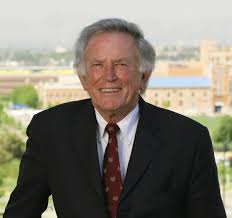
Dear Senator Kerry,
The following information is provided at the request of Mr. Tosh Plumlee and is to document specific contacts he made with my Senate Office during the years of 1983-1985.
In March of 1983, Plumlee contacts my Denver Senate Office and met with Mr. Bill Holen of my Senate Staff. During the initial meeting, Mr. Plumlee raised certain allegation concerning U.S. foreign and military policy toward Nicaragua and the use of covert activities by U.S. intelligence agencies. He indicated that he was personally involved in covert military intelligence activities in Central and South America beginning in Feburary 1978. He stated that he had grave concerns that certain intelligence information about illegal arms and narcotic shipments were not being appropriately acted upon by U.S. intelligence and law enforcement agencies. Mr. Plumlee's stated purpose in contacting my office was to attempt to initiate a congressional investigation of these allegations. Mr. Plumlee stated that he had personally flown U.S.-sponsored covert missions into Nicaragua. He stated that Nicaragua was receiving assistance from Cuba with nearly 6,000 Cuban military advisors and large quantities of military supplies were being stockpiled at various staging areas inside Nicaragua and the Costa Rica border.
Mr. Plumlee also stated that Mexico, Costa Rica, Guatemala and El Salvador were providing U.S. military personnel access to secret landing field (sic) and various staging areas scattered throughout Central America.
The Honorable John Kerry
Washington, D.C.
February 14, 1991
Page 2
He specifically states the Mexican government's direct knowledge of illegal arms shipments and narcotic smuggling activities that were taking place out of a civilian ranch in the Veracruz area which were under the control and sponsorship of the Rafael Car-Quintero and the Luis Jorge Ochoa branch of the Medellin Escobar Cartel.
Mr. Plumlee states that the U.S. military and intelligence agencies had been otified through proper channels of these allegations.
During the next three months, Mr. Bill Holen of my staff met with Mr. Plumlee on several occasions allowing him to further elaborate on his experiences and concerns with U.S military operations in the region. In those later meetings, Mr. Plumlee raised several issues including that covert U.S. intelligence agencies were directly involved in the smuggling and distribution of drugs to raise funds for covert military operations against the government of Nicaragua. He provided my staff with detailed maps and names of alleged covert landing strips in Mexico, Costa Rica, Louisiana, Arizona, Florida, and California where he alleged aircraft cargoes of drugs were off-loaded and replaced with Contra military supplies. He also tates that these operations were not CIA operations but rather under the direction of the White House, Pentagon, and NSC personnel.
My staff brought these allegations to the attention of the Senate Armed Services Committee and the Senate Intelligence Committee at the time but no action was initiated by either committee.
Sincerely,
/S/
Gary Hart
GH/gmcg
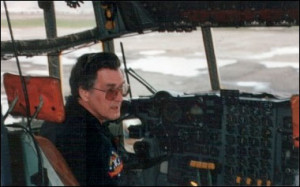
See Also:
2013-11-01 Former CIA Pilot Plumlee Says Reagan Administration Responsible for Death of DEA Agent
Marcus Aurelius: Gala for CINCSOC Brings Out Many Failures
07 Other Atrocities, 10 Transnational Crime, 11 Society, Corruption, Cultural Intelligence, Director of National Intelligence et al (IC), Government, Idiocy, Ineptitude, IO Deeds of War, IO Impotency, Officers Call
Without comment. PBI should assign appropriate headline.
Washington’s Intelligence Community Comes Out For a Gala “Spy” Prom
The annual OSS Society Donovan Award dinner honored Adm. William H. McRaven
Washingtonian “Capital Comment,” 28 October 2013
No one in the ballroom came right out and shouted, “William McRaven for elected office!” but the idea hovered like a thought bubble over the OSS Society’s William J. Donovan Award Dinner Saturday night, where the commander of US Special Operations was honored—including by President Obama—and even sounded himself a bit like a candidate.
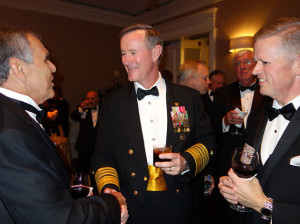
The annual celebration commemorating the World War II spy agency and predecessor of the CIA—for the intelligence and special operations communities, it’s the prom and the Oscars wrapped in one—is a time for reminiscing and gossiping for both the smooth-skinned, ramrod-spined young operatives and the retired spies and warriors with more medals than hair or teeth. But McRaven, the Navy admiral who oversaw the 2011 Navy SEAL mission that resulted in the death of Osama bin Laden and who received the Donovan award, gave this year’s gathering a political edge.
President Obama addressed the audience and the honoree via taped video, his image filling three ceiling-high screens. He called McRaven “one of the finest special operators our nation has ever produced. Few Americans will ever see what you do, but every American is safer because of your service.” Also lauding him in taped messages were two other individuals who were directly involved in the bin Laden mission, former CIA director Leon Panetta and Defense Secretary Robert Gates.
A third official who was a player in that historic episode, John Brennan, now director of Central Intelligence, relived the experience in his remarks. He said the deliberations to undertake the mission were “difficult and fraught with uncertainty.” He said there was “a key moment in those deliberations when President Obama seemed to move a step closer to his final decision. It was when Adm. McRaven looked at the President and said, ‘Sir, we can get this job done.’ You could hear a pin drop. It was at that time that everyone in that room knew the decision was made and we were going forward.”
Continue reading “Marcus Aurelius: Gala for CINCSOC Brings Out Many Failures”
LtCol X: CSA Sends – Strategic Priorities for the Army – with Phi Beta Iota Comments
10 Security, 11 Society, Corruption, Cultural Intelligence, Director of National Intelligence et al (IC), DoD, Ethics, Ineptitude, IO Deeds of War, IO Impotency, Lessons, Military, Officers Call, Peace Intelligence, Strategy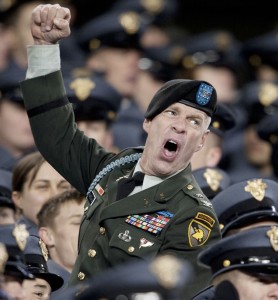
Please note Army Chief of Staff General Raymond T. Odierno‘s updated strategic priorities for the US Army, arranged in five (5) categories. PDF Slide Show: CSA Strategic Priorities vFinal 16Oct13
From those, here is an extract .
EXTRACTS:
[DOWNSIZED ARMY; EXPEDITIONARY]
– Downsize, transition, and then sustain a smaller, but ready and capable Total Army that provides Joint and Combined forces with expeditionary and enduring landpower for the range of military operations and features unique competencies such as operational leadership, mobility, command and control, and theater logistics at all echelons.
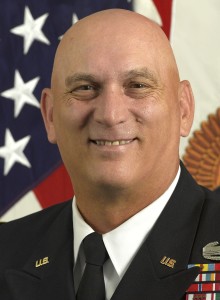
Phi Beta Iota: To downsize effectively you have to have ethical evidence-based decision-support immediately applicable to strategy, policy, acquisitions, and operations. This does not exist. NGIC once upon a time had Tim Hendrickson and GRAND VIEW but they never made the leap to holistic analytics and true cost economics. Army flags — including the very best of them — simply do not know what they need to know to demand of the intelligence “professionals” what the latter have no clue how to produce. We have not seen a single useful strategic, policy, or acquisition document come out of DIA in the past twenty years…nor CIA. All these people are still in the cut and paste fluff mode that Col Mike Pheneger, USA (SOF) blew the whistle on in 1988. Nothing has changed in substance — just more people, more money, more (retarded) technology, and much less useful thinking.

[ENABLERS; EXPEDITIONARY; UNIFIED ACTION PARTNERS (UAPs)] – Support the Joint Force with critical enablers such as aviation, intelligence, engineers, logistics, medical, signal, and special operations, both while enroute to, and operating within, expeditionary environments alongside Unified Action Partners.
Phi Beta Iota: The Marine Corps led the way with Planning and Programming Factors for Expeditionary Operations in the Third World, and then lost its integrity and started chasing money instead of producing ethical evidence-based decision-support relevant to what General Al Gray wanted in the first place, compelling support for honest light-footprint low-cost acquisition (something the other four services need but refuse) along with strategic and operational support to what he called “peaceful preventive measures.” The Navy has imploded — as many Admirals as ships, and the whole lot of them are not worth anything in terms of rapid precision response, this leaves the Marine Corps both 4-6 days away from anywhere, and totally exposed (e.g. no Naval Gunfire, rotten CAP) once they get there. Army cannot do what it wants to do without an honest long-haul Air Force and a complete make-over of close air support (to include transfer of CAS to the Army) as well as reconnecting to reality at the geospatial, cyber, and cultural levels.
Penguin: Book Review by Andrew Bacevich — Thank You For Your Service [The Unraveling]
07 Health, 11 Society, Civil Society, Corruption, Cultural Intelligence, Director of National Intelligence et al (IC), DoD, Government, Idiocy, Ineptitude, IO Deeds of War, Military, Officers Call, Peace Intelligence, Threats
Book review: ‘Thank You for Your Service’ by David Finkel
By Andrew Bacevich
Andrew J. Bacevich teaches at Boston University. His new book is “Breach of Trust: How Americans Failed Their Soldiers and Their Country.”
Nominally a sequel to The Good Soldiers, his 2009 account of an American infantry battalion at war in Iraq, David Finkel’s new book actually serves as a perfect companion to George Packer’s recent bestseller, The Unwinding. Like Packer, Finkel examines the human detritus left in the wake of fraudulent promises and collapsed illusions. In The Unwinding, Packer contemplates the fate of those victimized by cataclysmic economic change. In Thank You for Your Service, Finkel looks at those victimized by egregious military malpractice.
The post-industrial, high-tech, information-age economy unveiled near the end of the 20th century supposedly offered a template for permanent prosperity. The Great Recession upended such expectations. Although some Americans have gotten very rich indeed, far larger numbers of ordinary citizens find themselves unemployed and unemployable. With impressive sensitivity, Packer tells their story.
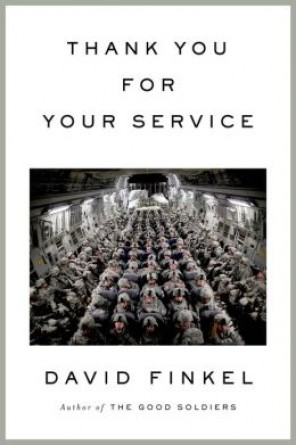
Concocted at about the same time, a post-industrial, high-tech, information-age approach to waging war supposedly offered a template for assured victory. Iraq and Afghanistan have shredded such pretensions. Although some high-ranking military and civilian officials found ways to cash in, far larger numbers of ordinary soldiers (and their families) suffered, many of them grievously. In painful, intimate and at times almost voyeuristic detail, Finkel tells their story.
More specifically, Finkel, a reporter with The Washington Post, attends to what he calls the “after war.” His concern is with the soldiers who return from the war zone bearing wounds — and with the loved ones on whom those wounds also become imprinted. Above all, he is concerned with wounds that may not be fully visible: the post-traumatic stress disorder (PTSD), traumatic brain injury and related conditions that affect roughly a half-million younger veterans. Make that a half-million and counting.
To translate this disturbing statistic into flesh and blood, Finkel checks in on some of the soldiers featured in his previous book. What he finds is anger, anxiety, shame, depression, guilt, sleeplessness, self-abuse, spousal abuse, child abuse, alcohol abuse, drug abuse and suicidal tendencies, sometimes acted on, sometimes not. Shouting matches, crying jags and bizarre behavior along with guns and two-pack-a-day smoking habits abound, but not much in the way of useful therapy. Of one soldier, Finkel writes: “He began to take sleeping pills to fall asleep and another kind of pill to get back to sleep when he woke up. He took other pills, too, some for pain, others for anxiety. He began to drink so much vodka that his skin smelled of it, and then he started mentioning suicide.”

